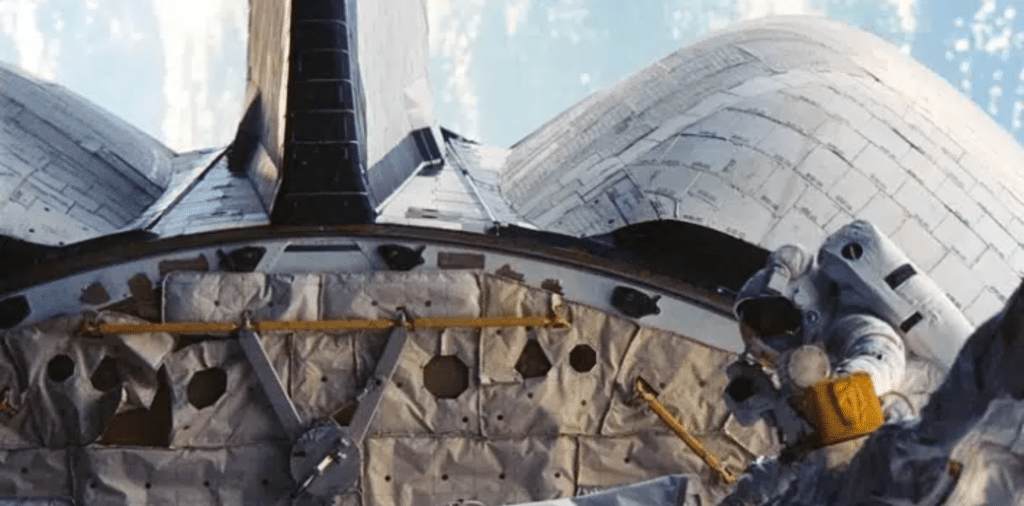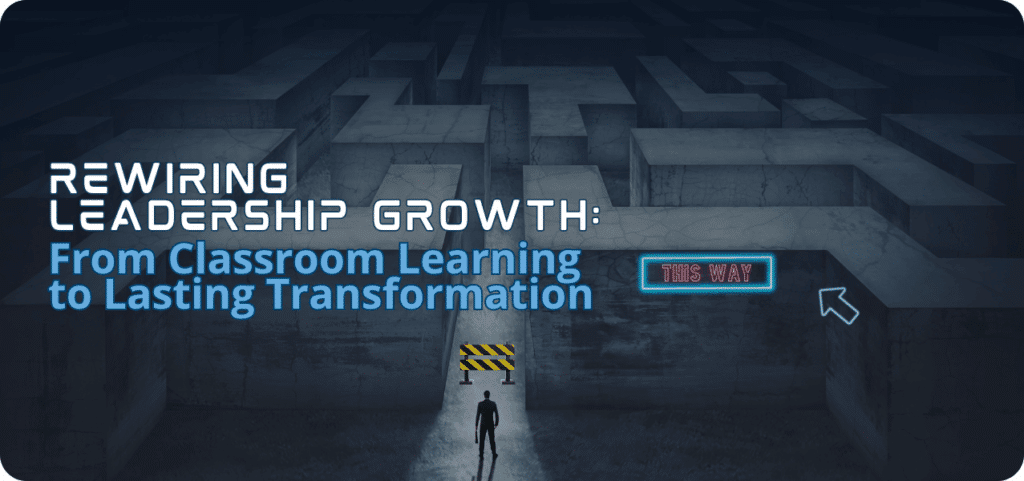The NASA Mindset: Building Trust in Uncharted Territory

In the realm of leadership, where bold visionaries must navigate uncharted waters, few environments test courage and adaptability as rigorously as space exploration. How do you foster trust and resilience in the face of staggering complexity, high stakes and ever-present uncertainty? Last October, the inaugural Artemis Leadership Experience offered answers by taking participants to the heart of innovation: Space Center Houston, home to some of NASA’s most ambitious missions.
Through our collaboration with astronauts, scientists, and mission-critical teams in Houston and beyond, WDHB designed an experiential learning program that connects the awe-inspiring challenges of space exploration to the practical leadership demands of today’s dynamic business environment. Drawing lessons from this new program offering, Artemis explores how embracing collaboration, psychological safety, and bold decision-making can equip leaders to thrive in complexity, influence through uncertainty and drive progress within their organizations.
Join us for a behind-the-scenes look at Day Two of the Artemis Leadership Experience, and discover how NASA-inspired leadership principles can help you turn daunting challenges into extraordinary achievements.
Collaboration: The Key to Psychological Safety and Navigating Complexity
Where Day One built a foundation on the history of the Apollo missions, as well as humanity’s fascination with innovation and the cosmos, Day Two of the Artemis Leadership Experience was designed to bridge the present and the future.
Participants explored how they might navigate the uncertainty of today’s world, including the increasing complexity of the business landscape. One such exploration included a panel discussion, bringing together a diverse set of senior leaders from key sectors in Houston, including energy, healthcare and aerospace. The panel affords the participants an opportunity to hear various perspectives on how to build and harness influence in complex environments, effectively gaining buy-in and collaboration to accelerate projects and initiatives. During this activity, participants had the opportunity to ask direct questions to the panelists, further connecting this topic to their individual contexts.
Whether senior engineers, space suit designers or NASA flight directors, both in the public and commercial sides of the space industry, we found that these leaders were deliberate and committed to making effective collaboration a priority. The success of the industry depends on ever-evolving partnerships. Therefore, seeking out diverse and unconventional connections not only accelerates innovation, but drives organizational growth, intercultural competency and, ultimately, the transformation of the entire sector.
Since most space leaders understand and live the importance of operating in a “high-stakes” environment, they operate in a way that places the collective benefit, safety and growth of the team ahead of the individual. Even in times of tension or disagreement, there is a strong undercurrent of keeping things moving forward by disagreeing and committing in order to “unstick” and overcome any challenge.
Many of the leaders in this sector have also emphasized how important it is to navigate this world with humility and a learner’s mindset. In this way, they can learn to not just overcome challenges, but to work together to anticipate challenges and prevent mistakes, big and small. In doing so, collaboration also drives a strong sense of responsibility and commitment to avoid the normalization of deviance, a phenomenon where what is deemed unacceptable or even unsafe eventually becomes the status quo. Instead, teams utilize the power of collaboration to drive excellence—and indeed the extraordinary—across the board.
These collaboration skills can also apply directly to any team’s cohesion, and as a result, promote psychological safety. Think of your team as stakeholders who need buy-in to support your projects in the long run. With direct, personal investment, team members can shine by having bold, new ideas encouraged and invited by leadership, building the desire to keep trying when setbacks and challenges arise. The more that disruptive and innovative ideas are invited into the room, the stronger the group’s belief that there is safety and value in sharing ideas and being heard by their higher-ups. Additionally, avoiding the normalization of deviance builds trust in teams, ensuring that individuals can rely on their teammates to be accountable.
By building a space that encourages out-of-the-box thinking, your team will never be short on new and expansive ideas.
Fail Fast, Fail Forward
In the opening session of Day Two, we had the Director of Flight Operations speak to how failure, or catching mistakes, is “actually rewarded.” He recounted one story about a mid-level team member, who escalated an issue urgently in relation to a critical, time sensitive project. Despite it being costly to stop and not move forward, that person showed courage and the ability to take responsibility. Pointing out their failure saved the larger team additional resources as well as reputational damage externally. This case was made an example of and the individual was recognized formally throughout the department.
In a “high-risk, high-reward” culture like that found in the space industry, speaking up about failure is foundational to building trust. While admitting flaws can feel vulnerable, this level of transparency can save time, resources and—in an often dangerous space industry—even save lives.
To maintain the forward-thinking and experimental spirit of innovation, teams must be willing to experiment—and accept that most experiments fail. The positive outcome of accepting failure is the development of a growth mindset. Each failed experiment can teach something new for the next evolution of an idea. Too much “analysis paralysis” and punishment of failure can stunt the growth mindset required to overcome challenges, and creates a fear of failure that erodes trust on teams.
To drive this innovative exploration home, Day Two included a hands-on activity created in collaboration with a senior scientist and former NASA team member. Participants experienced and engaged in an exercise that forced them to collaborate under pressure, iterate and use their creativity and communication skills to identify a solid solution. Participants said they loved the opportunity to learn through play, think critically and discuss the importance of failing forward and fast. Their discussions underscored the value for leaders to create awareness for collaboration in the decision-making process, as well as rewarding failure.
I valued each session. Each brought me ideas for enhancing my leadership skills. I’ll update our senior leaders on this valuable experience for all topics, but especially: recovering from setbacks, influencing through complexity and failing fast and forward. Thank you, team WDHB.
–Kathy Camou, Leadership Development Branch Chief, United States Patent and Trademark Office
A growth mindset is essential, and needs to be implemented at every level of an organization—starting with leaders. Failing forward also builds psychological safety, and people will feel empowered to innovate if they know failure is recognized as critical to organizational success.
The Audacious Decision-Maker
Embracing failure doesn’t always feel so simple when there is high risk to consider. Yet, uniquely and historically, the space industry has required leaders to truly embrace unconventional solutions—whether it was inventing new materials, imagining new possibilities or testing (and failing) thousands of times in order to achieve extraordinary objectives. The audacity to try comes through not just in the creation of new things or new methods, but also in being bold, demonstrating the courage to “stop” a takeoff, a project or initiative for the greater safety or benefit of the wider mission.
Audacity is also very much linked to the “tough and competent” phrase first coined by the infamous Gene Kranz:
From this day forward, Flight Control will be known by two words: ‘Tough’ and ‘Competent.’ Tough means we are forever accountable for what we do or what we fail to do. We will never again compromise our responsibilities. Every time we walk into Mission Control we will know what we stand for. Competent means we will never take anything for granted. We will never be found short in our knowledge and in our skills. Mission Control will be perfect. When you leave this meeting today, you will go to your office and the first thing you will do there is to write ‘Tough and Competent’ on your blackboards. It will never be erased. Each day when you enter the room these words will remind you of the price paid by Grissom, White and Chaffee. These words are the price of admission to the ranks of Mission Control.
— Gene Kranz, NASA Flight Director, address to flight control team on the Monday morning following the Apollo 1 fire. Since known as the Kranz Dictum. 30 January 1967
Most people within the space sector feel as though the work they are doing is part of the greater good, expanding space exploration to benefit humanity—and the Earth—as a first priority.
How can business leaders foster the kind of audacity required to break new ground in their industries?
One American former Astronaut veteran of three space missions spoke to participants about his time as a mission commander, faced with an overwhelming number of decisions. As a leader, he was directly responsible for his crew and, ultimately, the mission itself. He spoke of taking the time to think through one-way and two-way doors—decisions that are irreversible and reversible, respectively. Analyzing risk-taking in this way can help to eliminate the “analysis paralysis” that can happen when a person is overwhelmed by the critical decisions that need to be made in a short time.
He also suggested engaging your team in tougher decision-making, which can increase the “velocity of decisions.” With multiple minds working on one problem, your team can catch something that was overlooked, reveal a new perspective and ultimately validate your next steps. Additionally, by involving your team in the decision-making process, you build the transparency and personal stakes required to foster trust—and, eventually, psychological safety.
Ultimately, even with collaboration, teamwork and careful consideration of all angles of a problem, leaders must still be prepared to take the leap into the unknown. Uncertainty can be frightening, but when a leader is able to step forward and make bold decisions, their audacity can help the team feel more secure. They can place their trust and confidence in the leader, the way their leader places confidence in the team. Charging into the unpredictable with a strong vision to guide the way, your team can move forward knowing that they will make it out on the other side as one cohesive unit.
A Bold Mindset for the Unknown
As NASA’s pioneering leaders have shown us, thriving in uncertainty requires more than technical expertise—it demands collaboration, resilience and the audacity to innovate. The discoveries made by participants at the Artemis Leadership Experience proved that success in the face of complexity is not about avoiding failure, but about embracing it as a path to growth. By fostering psychological safety, rewarding experimentation and empowering teams to make courageous decisions, leaders can create environments where trust and progress go hand-in-hand.
For business leaders, the lessons of space exploration offer a powerful reminder: bold leadership starts with a willingness to step into the unknown, guided by a clear vision and supported by a cohesive team. Whether you are navigating a high-stakes project or leading your organization into new territory, embracing the NASA mindset can help you and your team achieve extraordinary results—no matter how vast or complex the challenge.
Editor’s Note: We would like to extend a special thank-you to Laura Palma (VP, Strategy and Solutions Development at WDHB and one of the lead developers of the Artemis Leadership Experience) for her contributions to this article.
Author
Subscribe to get Access to Exclusive Content





